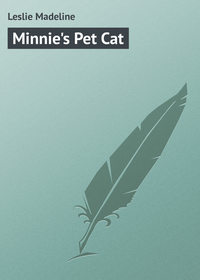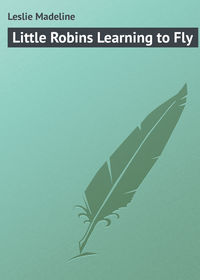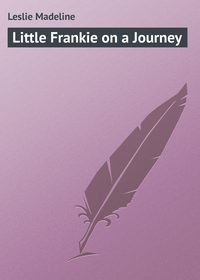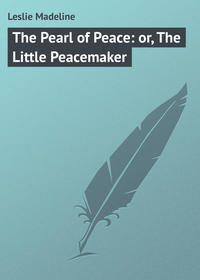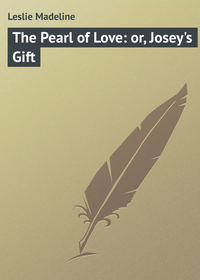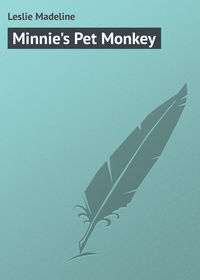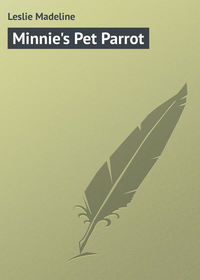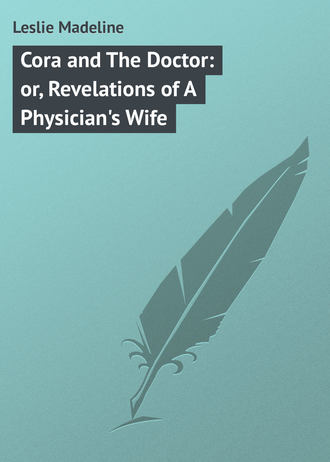 полная версия
полная версияCora and The Doctor: or, Revelations of A Physician's Wife
There was no reply.
"Well then," said I, "there is no help for it. I must give you a dose of castor oil." I proceeded toward the closet, as if I were intending to administer it to him at once, while I was thankful for an opportunity to relax my stern countenance.
"Cora," cried the Doctor, "don't give me any." His voice was feeble, and I could carry the joke no farther.
"Well; then, what can I do?" I asked, returning to him. "Phebe, do you know that what you were giving your master may cause his death?"
Pauline began to cry, "Oh, mamma, I was afraid I was not doing right, but father so longed for some chicken broth."
"Laws missus!" said Phebe, uncovering the bowl, "'tan't got no strength to it. 'Pears like he's powerful hungry. I 'clare your ole Phebe be de last one make the broth too strong for sick mass'r."
I tasted the broth and finding it really weak, I hoped my hungry patient had sustained no real injury. The Doctor put out his hand to Pauline, and in a most child-like tone said, "I was the only one to blame, dear child."
She kissed him, and I motioned her to go below. Frank looked as if he thought he deserved a punishment, and expected to receive it; but some how I never could punish a child who appeared sorry, and just so I felt in this case; and therefore I merely said, "I will help you to lie down, and will read to you. My dear husband," I said, when I rose to go below for my dinner, "if the broth does not injure you, I will ask Dr. Clapp to let you have a dinner of it to-morrow."
He looked his thanks and pressed my hand. I am more than ever convinced that man was made to command, and woman to obey, and that the rule in that good old fashioned book is right, "wives reverence your husbands – husbands love your wives."
Tuesday, October 1st.Frank is so much better, that he not only eats broth, but chicken and eggs. I believe, he would eat six meals a day, if we would carry them to him. But I think he is growing a little more rational. Pauline came to me the other day, very much grieved at herself for carrying the broth to her father. He had begged her to ask Phebe up, when mother and I were away, enjoining the strictest secrecy upon her, and the poor child knew not what to do. I comforted her with the thought that no harm had come of it, and she would know better next time.
Frank sits up almost all day, and we are beginning to feel a little settled. School lessons are vigorously learned, Pauline having been duly installed in my place as teacher. I have as much as I can do to take care of my patient, who is, however, rather impatient sometimes, if I am long out of the room.
If I leave him with mother, I have to set the exact time that I will return, and give him the watch to mark the minutes. Though often inconvenient, yet it is delightful to have him longing for me to be with him. I would not for worlds have it otherwise.
Monday, October 7th.I have some wonderful news for you, dear mother. It is our present intention to leave America just as soon as the Doctor is able, spend the winter and spring in the south of France, and return home by way of England.
We should not be able to do this, if it were not for our kind friend and physician, Dr. Clapp. I love him as a dear brother, and there is a most delightful intercourse between our families. I have not time to tell you how this plan came about so quickly; only to say that it is nothing new to the Doctor; but he has been keeping it to himself. Mother will spend, at least, part of the winter with Emily, and Ann will go with her. Cæsar and Phebe will remain here. Ruth is to accompany us with all the children.
Thursday, October 7th.We hope to leave in the "Unicorn" which sails the twenty-fifth of this month. The Doctor has rode out once, and it did him great good. Pauline is much pleased with the prospect of visiting Europe, while Nelly and Frank are perfectly wild with delight. We may meet Joseph Morgan, who has been in business in France for two years or more.
Friday, October 11th.I have but a moment to tell you that preparations are going on briskly. Emily Benson has come over from the parsonage and is very efficient assistance. She thinks of everything. Mr. Benson lost nothing by waiting five years for her. She has developed into a splendid woman, and is universally beloved in the parish. "Her husband also and he praiseth her."
Though every moment is precious, yet I cannot refrain from repenting a remark of our good friend, Mrs. Marshall, wife of the Attorney General, in relation to our dear sister. She said, "Mr. Benson's family reminds me of Cowper's description of his friends, the Unwins, 'Go when I will, I find a house full of peace and cordiality in all its parts and am sure to hear no scandal, but such discourse instead of it, as we are all the better for.'"
You would laugh if you could see the quantity of baggage master Franky has collected for the journey, and which he has no doubt aunt Emily will be able to get into his trunks. This moving a whole family for an absence of nine months, which is probably the length of time we shall be away from home, is no trifling matter.
Mother insists that I shall not trouble myself with a thought about home arrangements. She will attend to everything here. My dear husband gains a little every day, and I think would gain faster if it were not for his anxiety to do more than he is able. He has been so long accustomed to take care of all of us, that he can hardly restrain himself until he is overcome with fatigue.
Wednesday, October 23rd.Dear mother, our trunks are packed, and we are on the eve of departure. To-morrow morning we leave for New York, and are to sail on Thursday.
A day or two since the Doctor received a champagne-basket full, not of wine, but of London porter, from his grateful patient, Lucy Mansfield. This we are to take with us, and Frank has already received benefit from it. With love to all the dear ones at home, I must bid you farewell. I intend to take my journal with me to New York and mail it from thence.
CHAPTER XXXIV
"With wild surpriseAs if to marble struck devoid of sense,A stupid moment motionless she stood." Thomson.Nice, France, Tuesday, December 10th, 1850.Dear Mother, – After a long, but not tedious voyage, the good ship "Unicorn," bore us gallantly into the port of Havre, where we arrived on the twenty-eighth of November.
I could almost see my dear husband gain in flesh and strength, so rapidly did he improve. He walks about now as erect and strong as ever. We tarried but two days in Havre, and then proceeded to this place, where we are comfortably established for the winter. That is, we shall be, when we can get our trunks unpacked.
I don't know but I shall regret not having taken mother Lenox's advice to bring Ann instead of Ruth. The poor girl appears almost demented, as she cannot understand a word of the language; and whenever I send her to the kitchen to bring water, or anything from thence, I hear a perfect roar of laughter from the servants at her droll talk and signs. She generally comes back empty handed as she went, rolling her white eyes from side to side, while she sometimes laughs, and sometimes cries at her "poor luck," as she calls it. To-day she came to me in great indignation, saying, "I 'clare, missus, 'pears like I'se couldn't bring down my idees to make dem doe heads 'stand anything I'se seb. I'se tink dey find dis chile has been brought up in de way to teach dem manners."
The weather is perfectly delightful. I only wish all the dear ones I love were here to enjoy it with us. It is quite fortunate for me that I have no household cares, for I have a double portion of journalizing. I promised to write mother Lenox, in the same full, free manner, as I have always written to you. And as the same journal will be passed from mother to Emily, and from Emily to Lucy, and from Lucy to somebody else, I must be especially careful of my style, while in writing to you I merely let my pen travel on at its utmost speed, and with our own poet,
"I feel a certain tingling comeDown to my fingers, and my thumb."Perhaps you can imagine, but I cannot describe to you, the thrill of delight which I felt when I first stepped upon terra firma in Havre; and remembered that though still far from home, and the grave of my dear father; yet I was in the same hemisphere with yourself and my beloved sisters.
No ocean rolled between us.
I was quite amused at a discussion, I overheard between Nelly and Frank, just before I commenced writing. Nelly was earnestly talking of the pleasure she anticipated in going to England, and wishing the time were already come. In both expectation and regret, she was cordially joined by her brother. She then proceeded to give Frank a particular account of aunt Nelly which could hardly be from memory; and ended by saying, "I am the most related to her of any of the family."
This, Frank stoutly denied, saying, "She is as much my aunt as yours." After quite a warm discussion of this interesting point, the disputants agreed to leave it to Ruth, who, after carefully weighing the subject, said in a very gracious tone to Frank, "I 'spects, she is, Mass'r Frank. But then 'pears like its you that's the nearest to mass'r, 'cause your name be like his." I hope Mrs. Colonel Morton will not be unduly elated at the honor to which Nelly aspires.
Saturday, December 14th.With the Doctor's efficient aid, we are now reduced to order; and can find a dress or apron without strewing the floor with the contents of three or four trunks. The same hands have driven up an innumerable number of nails for clothes, of which Ruth and I have made extempore closets by sewing rings to a sheet, and hanging them in front, so that we have only to put aside our curtain, and we are in the inclosure, while coats, dresses, and other clothes are free from dust. Master Franky has a trunk devoted to him for his toys, and so far thinks it much more convenient than his drawers and lockers at home. Another trunk has been assigned to books, slates and apparatus. School commenced in earnest to-day.
The Doctor has sent for a piano, that the children may not lose their practice. He also intends Pauline to take lessons on the harp. I am not, as you know, a proficient upon that instrument.
I have added to my family a little French girl, daughter of one of the peasants, who was very willing to leave her parents for a time, to come to us. Ruth is a very good sempstress; and I find enough of that employment for her, and in following "mass'r Franky" in his walks of discovery about the town.
My husband chose this location from the fact of its being so healthy; and because there is a Protestant church here. Nice is a great resort for invalids. There are quite a number of families here at present. One lady, with her husband, child and servant occupy rooms above ours. Frank intends calling with me on the aged pastor, whom we have not seen except at church. Our landlord speaks of him with the greatest enthusiasm and affection; and ascribes the peace and prosperity of the place mainly to his influence, and untiring efforts for the good of his people.
Friday, December 20th.There is very little variety in our life, and I fear, I shall not be able to relate much that will interest you. I give six hours a day to the children, while Pauline recites in mathematics and Italian to her father. I wish, dear mother, you could see our Pauline again. She reminds me of an author, who describing a young lady, says, "she is near that age, sixteen, at which every day brings with it some new beauty to her form." No one can be more modest, nor, (which seems wonderful in a woman,) more silent; yet when she speaks you might believe a muse was speaking. But then her face,
"So lovely, yet so arch, so full of mirth,The overflowings of an innocent heart."She is silent only when strangers are present. In the company of those she loves, she is all animation, and merriment. Her father says it is a perfect delight to teach her. The remainder of the school hours Frank devotes to reading, which is a real luxury to him, reserving his walks until we can accompany him.
The Doctor and myself called last evening upon Mr. Percival, whose gray locks, and venerable aspect had already inspired us with respect. He received us with the kindness of a father, and related many incidents connected with his flock which were very pleasing. He has established two schools, one for infant scholars, and another for those more advanced. The infant scholars, however, are many of them near a dozen years of age. He accompanied us part of the way on our return to visit an English gentleman, who is very sick and has come here to die. "Perhaps," said the old gentleman, "at some future time, I may communicate some facts relative to his history. His life has been one of no common interest."
We parted from our companion with regret, having obtained from him a promise to return our call at his earliest convenience.
Monday, December 23d.This morning an incident occurred, which for want of other excitement, has given us a fruitful subject for conversation. Having observed a retired spot not far distant from the house where the invalid of whom I spoke was stopping, we turned our steps toward it, and found it to be a family burying place containing five graves, upon one of which was a beautifully white marble monument, inscribed with the simple word "Imogen." We stood a while to weave each for ourselves a history of this loved one, whose grave was of the usual size of a fully grown woman. Perhaps she was an only daughter, or a young wife, whose early departure had cast a gloom over a large family.
Pauline and Nelly who started with us had lingered on the way, and came in sight just as we turned to leave the place. Meeting our good friend, Mr. Percival, we walked on slowly together, leaving them to visit the simple grave. It was nearly an hour before they returned. The Doctor and I were enjoying a delightful conversation with our aged friend, who had accompanied us home, when Nelly came bounding into the room, saying, in an excited tone, "oh, mamma!" But seeing we were not alone she checked herself, and was introduced together with Pauline to our visitor. I gazed at Pauline with wonder. Her whole countenance was lighted with animation. Her eyes sparkled, and there was the richest bloom upon her cheeks. I saw at a glance that something unusual had occurred, and said inquiringly, "Well, my daughters, have you had a pleasant walk?"
"Very," they replied, and retired from the room.
Our visitor had no sooner taken his departure than they came running in, eager to communicate their adventure.
"Oh, mamma!" exclaimed Nelly, throwing herself into a chair, "Pauline has had such a scene."
"Yes, mamma," said Pauline, "I never expected to create such a sensation as I did soon after you left. I went to the cemetery with Nelly, and after walking around had thrown myself down before the monument marked 'Imogen.' I was imagining my own feelings, had the interred been my mother, and thinking if such were the case, how I should love to visit her grave, and plant flowers around it, when I looked up to meet the glance of a young man who was tenderly assisting an old gentleman toward the very spot where I knelt, while in one hand he carried a portable seat. A single glance sufficed to assure me that they were mourners for some beloved friend lying there; and I sprang up hastily and apologized for my intrusion. The old gentleman had not appeared to observe me until I spoke; but then he started back as if he had seen a ghost, and would have fallen to the ground had not his companion hastily thrown down the stool, and caught him in his arms. I opened it, and stepping behind them motioned the younger one that it would be better to let him be seated. He put his hand feebly to his head, saying audibly, 'Oh, my God! support me under this.' Then turning to his son, he said, 'Did you see her, Eugene?'
"'Who, father?'
"'Why oh! I forgot myself. Let us return; I can't stay here. Perhaps she'll come back.'
"'Dear father, your eyes have deceived you. It was only a young lady who happened to be reading the epitaph upon the tomb stone;' and he turned to look again at me.
"I had lost all power of motion, and was so drawn toward father and son, that I had not thought of moving.
"'You have been so very anxious,' continued the young man, 'to come here once more, and the air is so balmy to-day, I fear you will not have so favorable an opportunity again.'
"A deep sigh was the only reply; and the son took a pocket-handkerchief, and tenderly wiped his father's forehead, as he leaned against his breast. 'Perhaps,' said he, addressing me in French,' you will come around in front of the grave. My father is much agitated at your sudden appearance.'
"I replied, in English, that I was very sorry for what had happened; and regretted that I had been led by curiosity to intrude upon their retirement.
"'No apology is necessary,' he replied.
"'To whom are you talking, Eugene?' asked the invalid in a very feeble voice.
"'To the lady, you saw, father,' and he made a motion with his hand for me to stand where he could see me.
"I did so, but no sooner did the old gentleman perceive me, than he started forward holding out both his hands as if to embrace me; and then with a dreadful groan fell back into the arms of his son.
"'Oh! what can I do for you?' I asked in affright.
"'Fly,' said he, 'to that house,' pointing to the nearest one, 'and call for help. Stay,' he continued quickly, 'if you could hold him, I could go quicker.'
"'Nelly,' I exclaimed, as she came running toward me, after wandering all over the enclosure, 'Run as quick as you can to that house, and tell the servants their master has fainted by the grave, and they must come directly.' I knew Nelly's skill in running would serve a good purpose on this occasion. I gave Eugene, as his father called him, my salts, and kneeling down vigorously rubbed the cold hands in mine.
"'I cannot account for it,' said he, 'why my father is so much agitated at the sight of you; but as he is so perhaps it will be as well for you to stand aside when he recovers his consciousness.'
"In a very short time, Nelly returned in company with a man and woman. The man brought a chair with pillows in it, and in this they speedily placed the unconscious invalid, and carried him away. Eugene merely said, 'I shall see you again,' as he left."
My dear mother, you who are acquainted with Pauline's history may judge in some slight degree of our feelings upon hearing of this adventure. I glanced at Frank, who turned very pale, but said nothing. Pauline got up with considerable excitement in her tone, and manner, and stood before a small mirror which hung in the room, saying, "I cannot conceive for whom the old gentleman could have taken me. I'm sure I don't see as I look like anybody but father." She has often been told of her close resemblance to him.
After she had left the room, Frank and I talked over the singularity of the event; but concluded that we were not called upon to make any inquiries with regard to the old gentleman's agitation, as he is an Englishman, and Pauline was, without doubt, a native of France. He is doubtless the one to whom Mr. Percival alluded in our first interview.
Tuesday, December 24th.Last night after Pauline's adventure I was so very nervous and excited that I could not sleep. I imagined the most improbable events, until I felt a perfect horror from the possibility that Pauline might be related to these people. I awoke Frank to ask him if he had brought the packet we received with her.
He replied that he had, but thought it was altogether probable we should carry it back as wise as we came. I told him I had not slept, and he quite laughed at me for making so much of a mere accident. He said that my imagination was always running away with me. I tried to think so myself and was soon asleep.
To-day Mr. Percival came in to invite us to attend service in the chapel to-morrow, (Christmas,) and having sent the children out for a walk, the Doctor asked him the name of the English gentleman who was so ill.
"Clifford," he replied, hesitating a moment. "Henry Clifford. He is, or was a colonel in the English army." I saw Frank give a sudden start, and then checked himself and went on with the conversation.
Mr. Percival hinted that domestic trials had brought on premature old age; that after having been for many years separated from his wife, he had come here to die by her grave. "Is it the one marked 'Imogen?'" I inquired.
"Yes, and the house you see from the spot is where she was born. The estate now belongs to her son."
"Was he an only child?" I asked, almost gasping in my eagerness for a reply.
"There was an infant who died about the same time as its mother."
"What was the cause of their separation?" asked Frank.
"I never understood sufficiently to relate," he replied in rather a reserved tone; and feeling entirely relieved from my great burden, I cared not to hear more. When Pauline returned, I somewhat astonished the dear child by the vehemence of my embrace. But recollecting myself, I pressed Miss Ellen also in my arms, that she might not suspect any particular emotion.
"What has happened, mamma?" said Pauline, "you look unusually happy."
"I am so, my dear," I could not avoid saying.
"And lovely too, mamma," giving me another kiss.
After he left, Frank went to his desk, and taking out the card upon which he had written the name of the gentleman to whom he had been entrusted with the dying confession of Squire Lee, looked earnestly at it, hoping the name was the same. But no, that was Shirley. He said while Mr. Percival was here, the thought that this might be the very man concerning whom he had made so many inquiries, flashed through his mind. It had been so long since he had despaired of learning anything about him that he had forgotten the name.
Wednesday, December 25th.We have had a very quiet Christmas, that is, since Franky has done shouting over the contents of his stocking. Miss Nelly is really growing into a young lady. She came to me last evening, and having drawn me to a part of the room where she was sure her father could not hear, she whispered that she thought she was too old to hang up a stocking, for she had known a long time who put the presents in it; and that she would as soon have them given directly to her.
I laughed so much at the idea of her thinking herself grown up, that her father insisted upon sharing the joke; and somewhat to the young lady's annoyance, I informed him that she had become too old to be treated like a child. He called her to sit on his knee, and told her he must have her for a baby a long time yet. She was so much better than Franky, who would not sit still a moment.
But Miss only pouted until he whistled, and held up his gold pencil case for her to play with, then saying, "Baby want to hear papa's watch tick, tick?" when she "laughed tears," and Pauline came running in to see what caused all the merriment.
Nelly sprang up from her father's lap, saying, "sister would make a far better baby than I should."
Pauline went and put her arms lovingly around her father's neck, and said as she laid her cheek against his, "I should be contented to be a baby in this way forever."
We took our whole family to church, filling up one entire slip. Franky was particularly polite to Ruth, whom he had requested leave to invite to sit with us on this occasion. He took the book of hymns from his sister, and passed it to his sable friend, a kindness which Ruth fully appreciated.
A young gentleman about twenty years of age sat near us. I could not avoid noticing that his eyes seldom turned from our pew. He was a fine, frank looking fellow, with light, curly hair, and fair complexion. But his principal beauty was a pair of brilliant eyes; very bright, but soft and mild in their expression. I saw that Pauline was confused by the young man's ardent gaze, and I was surprised as we came out of the aisle to see that she slightly returned his bow. But I had not much time to wonder, before Nelly whispered, "mamma, that's Pauline's 'Eugene.'" I saw by a smile on his countenance that the young man had heard her introduction; and we were relieved from rather an awkward meeting, by Mr. Percival, who inquired about his father, and then introduced him to us.


